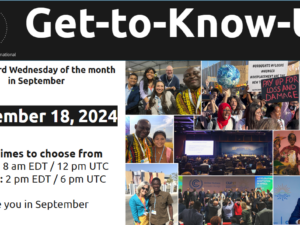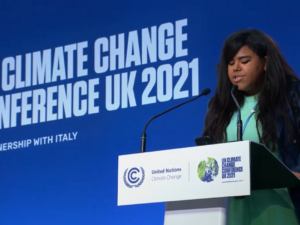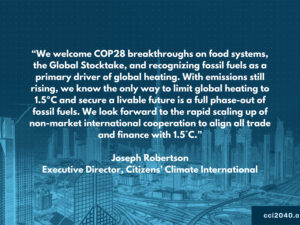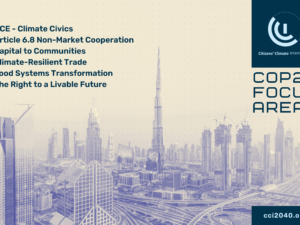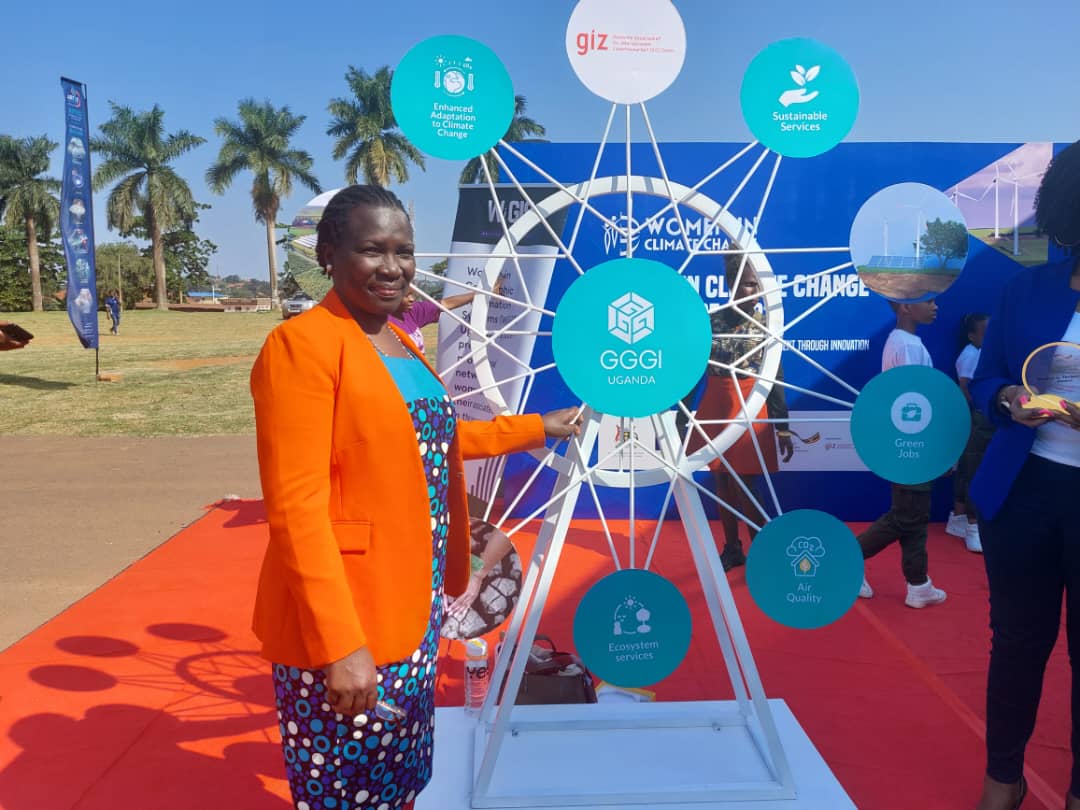
Announcing the CCI NDC Collaborative
We cannot afford, even in the next few months and years, to keep expanding the reach of destructive and unsustainable practices. Too much is at stake, as heat records are broken, water and food supplies put at risk, and climate-induced destabilization becoming more likely around the world. What we decide now may well shape the conditions in which human beings live for millennia to come, deciding for them whether security, prosperity, and the protection of basic rights and wellbeing, are possible at all.
CCI volunteer chapters work to build awareness of the need for action, and of the solutions that can drive transformation and support climate-resilient development. In 2023, we are launching a strategic initiative to support citizen volunteers in directly inputting into the process of upgrading nationally determined contributions to the global climate crisis response (NDCs).
The best-designed and most durable NDCs, with the best chance to serve as foundations for the future security, prosperity, and wellbeing of a country, cannot be only top-down exercises. They must have roots in community experience, in the ways in which people and nature interact locally, regionally, culturally, and with an integrated and holistic approach to connecting science insights to human experience and ingenuity.
As the first Global Stocktake on progress toward Paris Agreement goals plays out, we aim to provide locally rooted, stakeholder-driven insights about the most viable path to successful climate-resilient development. This will entail direct engagement with public officials and media. It will involve local observer testimony, stakeholder convening, and policy recommendations.
The Citizens’ Climate mission is founded on the principle that politicians don’t create political will; they respond to it. This is why our volunteers cooperate to act on five levers for building political will:
- Local chapter & volunteer development—The beating heart of CCI civics and education work is the local volunteer chapter. We support local groups of volunteers, and work to build climate advocacy and civic engagement skills.
- Grassroots engagement—Our local volunteer chapters organize events, join larger events, and provide community education on the economics, science, and policy response to climate change.
- Grasstops engagement—We seek to educate, build partnerships with and gain the support of trusted community leaders and non-governmental organizations, both nationally and locally.
- Media relations—We train citizen volunteers to engage with local and national media. This can include letters to the editor and opinion articles, meetings with newspaper editorial boards, and engagement with radio and television.
- Meeting with public officials—We train citizen volunteers to work in teams, to advocate for effective science-based climate policy, through friendly working relationships with their own representatives in government.
As we noted in our recent submission to the World Bank evolution process:
Our experience is that inclusion enhances ambition, accelerates and improves implementation, while making high standards more actionable, enforceable, transparent, and achievable.
The CCI NDC Collaborative will invite local citizen volunteer leaders, including but not limited to CCI volunteer chapters, to organize community meetings, downscale climate science insights to local context, and provide clear, time-bound outlines of transformational policy and action to decision-makers.
- The Engage4Climate Toolkit provides a menu of options for structured stakeholder meetings, where even untrained local observers can contribute policy-relevant insights.
- The Capital to Communities report offers examples of integrated action toward the Sustainable Development Goals, with insights into decentralized value creation—valuing the role of local communities in overcoming loss and damage and achieving long-term resilience.
- Inclusion Drives Ambition—our report from the mid-year U.N. Climate Change negotiations—highlights the need for more diverse sources of information, including from marginal, vulnerable, and indigenous communities.
- The Livable Future Consultation provides an opportunity for ongoing stakeholder input into policy discussions—at national and international levels, and on the way to the Summit of the Future in September 2024.
- The Earth Diplomacy Leadership Initiative will provide trainings in advance of the COP28 round of U.N. Climate Change conference, so participants, observers, and stakeholders are prepared to contribute to the high stakes negotiations.

Our featured image on this page shows Ann Grace Akiteng, CCI Teso Group Leader in Northern Uganda, at the Women in Climate Change Conference (WiCC 2023), at Makerere University Business School in Kampala, where she received an award for Outstanding Female in Climate Action at the Grassroots Level. Ann Grace was recognized for her contribution in championing climate change mitigation and adaptation actions in schools and for advocacy in Alwa subcounty, Kaberamaido district. She is one example of the thousands of local CCI volunteer climate advocates, working to improve lives, shape policy, and make livable climate future possible.
Follow news about the CCI NDC Collaborative here.


